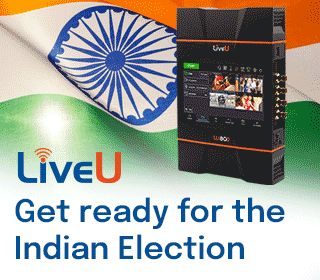Headlines Of The Day
Broadcasters to rationalise the channels’ value and bouquet value, HC
The Bombay High Court on Wednesday put aside one of many twin situations of the Telecom Regulatory Authority of India (TRAI) within the case associated to the amendments to the 2017 tariff order that mandated fixing and limiting costs of the channels provided by numerous broadcasters in a bouquet, providing partial reduction to the TV broadcasters.The division bench of Justice AA Sayed and Justice Anuja Prabhudesai, whereas upholding the constitutional validity of the amended tariff order (NTO 2.0), struck down the second proviso of the twin-conditions, which directed that the utmost retail value of any a-la-carte pay channel in a bouquet can’t be greater than thrice the common value of any channel in the identical bouquet.
This merely means the broadcasters can now embody greater value channels (as much as Rs 12) within the bouquet together with low value ones.
However, the court docket, in an oral order put aside different prayers of the petitioners together with the one difficult the constitutional validity of Section 11 of TRAI, which determines the features and authority of the regulator over broadcasters.
TRAI’s NTO 2.Zero timeline
| Jan 1, 2020 | TRAI notifies amendments to the brand new tariff order of 2017 |
| Jan 10 | Top Indian broadcasters share a stage to debate their grievances and combat NTO 2.0 |
| Jan 14 | Broadcasters, IBF, Producers’ Guild problem NTO 2.Zero within the Bombay HC |
| Jan 21 | Division bench of Justice SC Dharmadhikari and Justice RI Chagla begins listening to the case |
| Feb 26 | After resignation of Justice Dharmadhikari, listening to resumes underneath justice AA Sayed and justice Anuja Prabhudesai |
| March 4 | The Bombay excessive court docket reserves judgment |
| July 24 | In absence of any directive from the court docket, Trai asks broadcasters to adjust to the tariff order, seeks particulars on channel pricing, bouquets by August 10 |
| Aug 12 | The Bombay excessive court docket resumes listening to within the matter, saying it is going to cross judgement in two weeks |
| Aug 20 | The court docket asks petitioners, Trai to submit last arguments by month-end |
| Sept 2 | Court begins last hearings within the matter |
| Oct 20 | The Bombay excessive court docket reserves judgment |
| Feb 22, 2021 | Trai requests the court docket to pronounce the order |
| June 30 | The Bombay excessive court docket pronounces its order, upholding the constitutional validity of the tariff order, whereas hanging down one a part of the dual situations |
Soon after the order, broadcasters sought a keep on the implementation of the NTO 2.Zero to weigh their choices, together with difficult this order within the Supreme Court.
The court docket has allowed six weeks’ time and requested Trai to not take any coercive motion until then.
The genesis of the dispute lies within the notification of January 1, 2020, by the regulator that introduced amendments to the tariff order of 2017, almost about fixing and limiting costs of the channels provide by numerous broadcasters in a bouquet.
The amendments had been challenged within the Bombay excessive court docket by the broadcasters.
The events to problem Trai had been Star & Disney India, Zee Entertainment Enterprises (ZEE), Sony Pictures Network India (SPN) and TV18, together with the Indian Broadcasting Foundation (IBF) and the Film and TV Producers Guild of India.
After listening to the arguments from all of the events, the court docket had reserved its judgement on March 4, 2020, when the Covid-19 pandemic resulted in a protracted lockdown.
In absence of any interim reduction within the matter, on July 24, Trai requested the broadcasters to adjust to NTO 2.Zero and publish the revised charges of their respective channels and bouquets by August 10.
The broadcasters as soon as once more approached the court docket for reduction, difficult the constitutional validity of NTO 2.0, which might have severely impacted their pricing skill.
Under NTO 2.0, Trai diminished the cap on the MRP of particular person channels that had been a part of any bouquet to Rs 12 per 30 days from the sooner Rs 19. The regulator additionally imposed twin situations for the bouquet formation, which is able to limit the low cost on channel bouquets to round 33%.
Firstly, the sum of MRP of all of the a-la-carte channels in a bouquet can’t be greater than 1 ½ instances of the worth of the bouquet.
This means, if a broadcaster is providing a bouquet of 10 channels for Rs 100 per 30 days, the mixed MRP of all of the 10 channels can’t be greater than Rs 150. This will make broadcasters rationalise the channels’ value and bouquet value.
The second situation, which has been struck down, would have made it troublesome for the broadcasters to membership a Rs 12 channel with Rs 0.50 or Re 1 channel in the identical bouquet.
Earlier, broadcasters had been providing customers a median low cost of 35-55% on channel bouquets, vis-à-vis whole a la carte value of all of the channels in these bouquets. Trai alleged that broadcasters have misused the flexibleness on bouquet reductions to “throttle market discovery of channel prices.”
Trai has additionally restricted the entire variety of bouquets per broadcaster to the entire variety of channels it distributes. So, if a broadcaster has 12 channels, it can’t kind greater than 12 completely different bouquets.
Senior counsel Venkatesh Dhond together with Ashish Pyasi of Dhir & Dhir Associates appeared for Trai within the matter. The Film and Television Producers Guild of India was represented by senior counsel Janak Dwarkadas and legislation agency AZB & Partners, whereas legislation agency TMT Associates was advising the IBF.
Desai Desai Carrimjee & Mulla was Star & Disney India’s legislation agency; ZEE and SPN had been represented by Wadia Gandy & Co and Bharucha & Partners, respectively. The Greater India









You must be logged in to post a comment Login